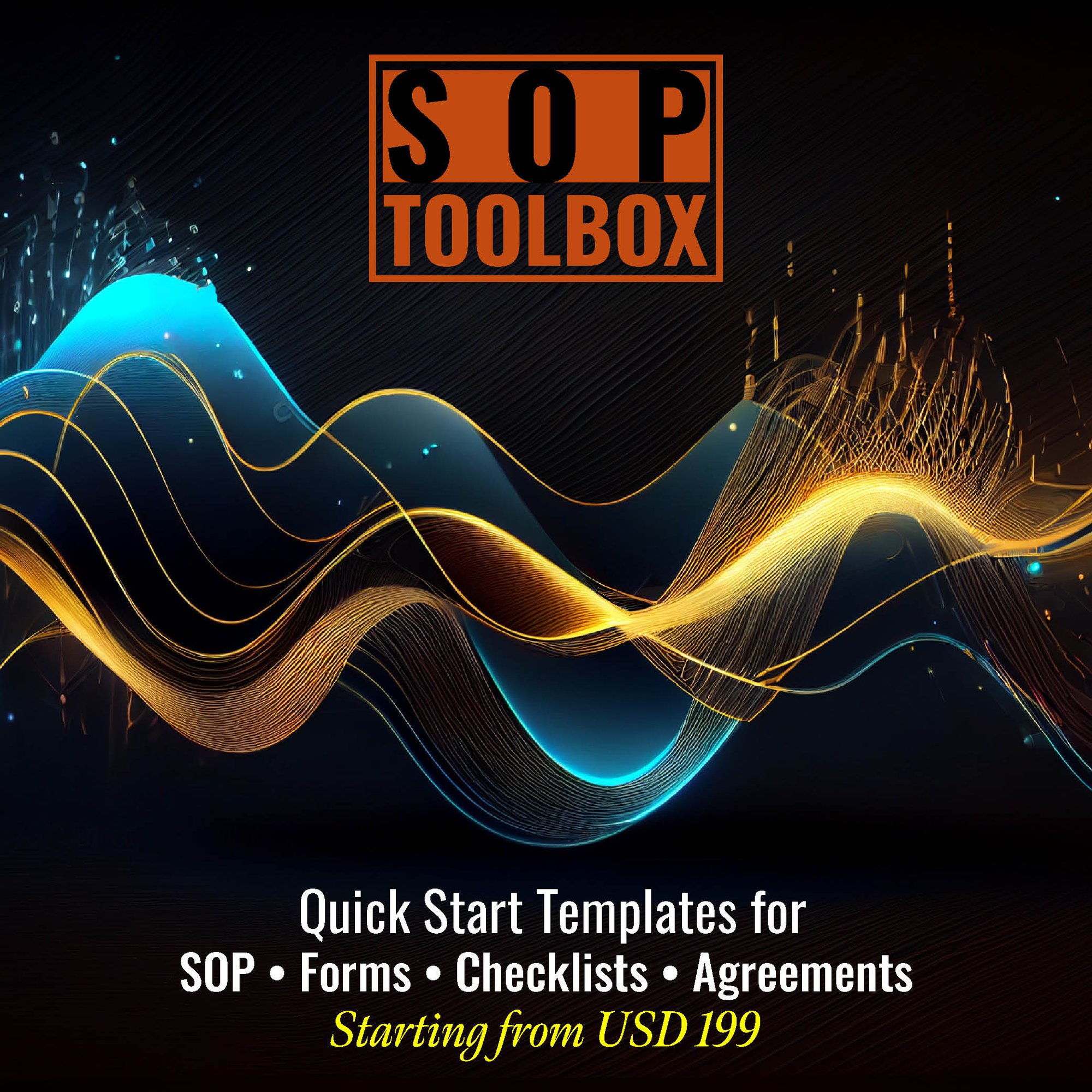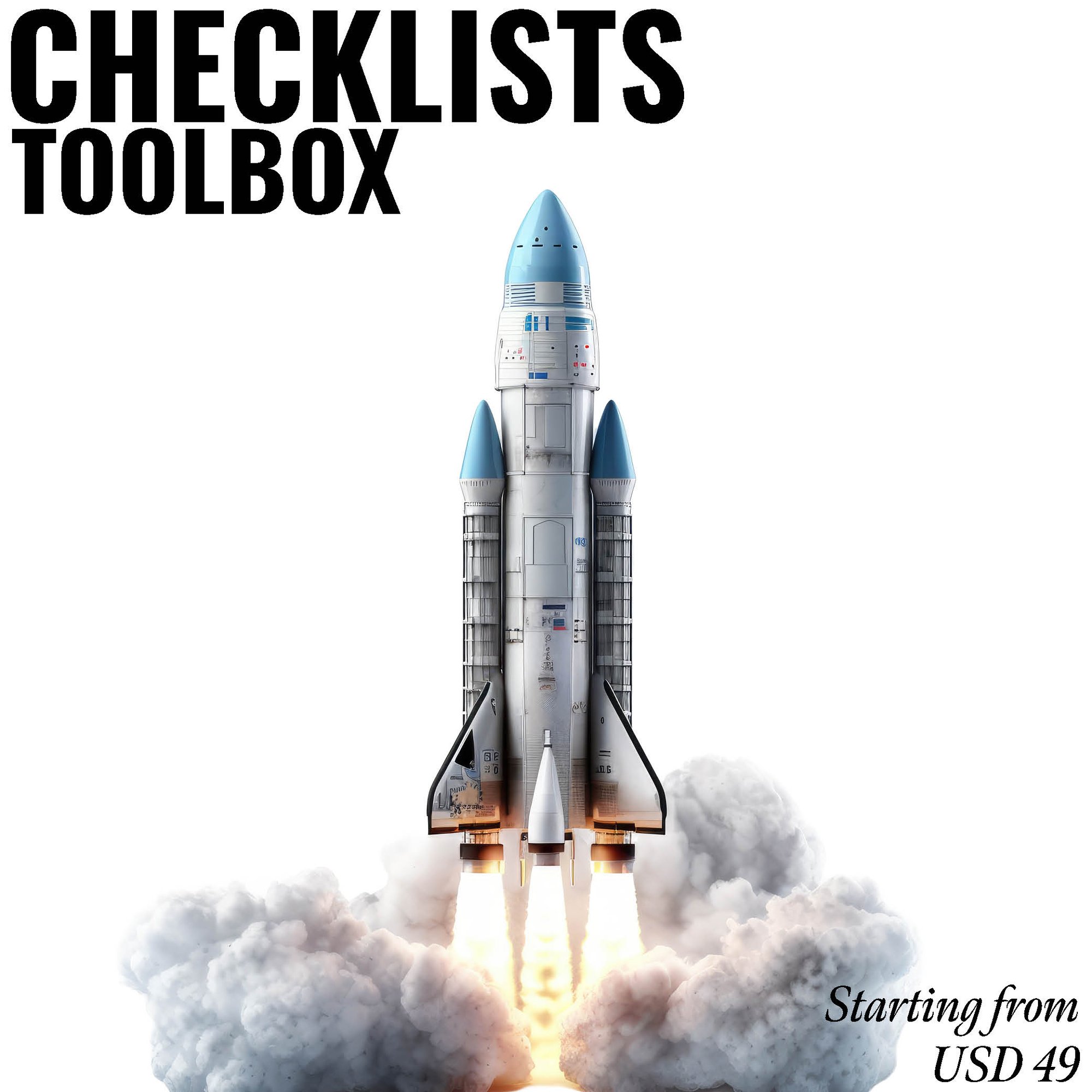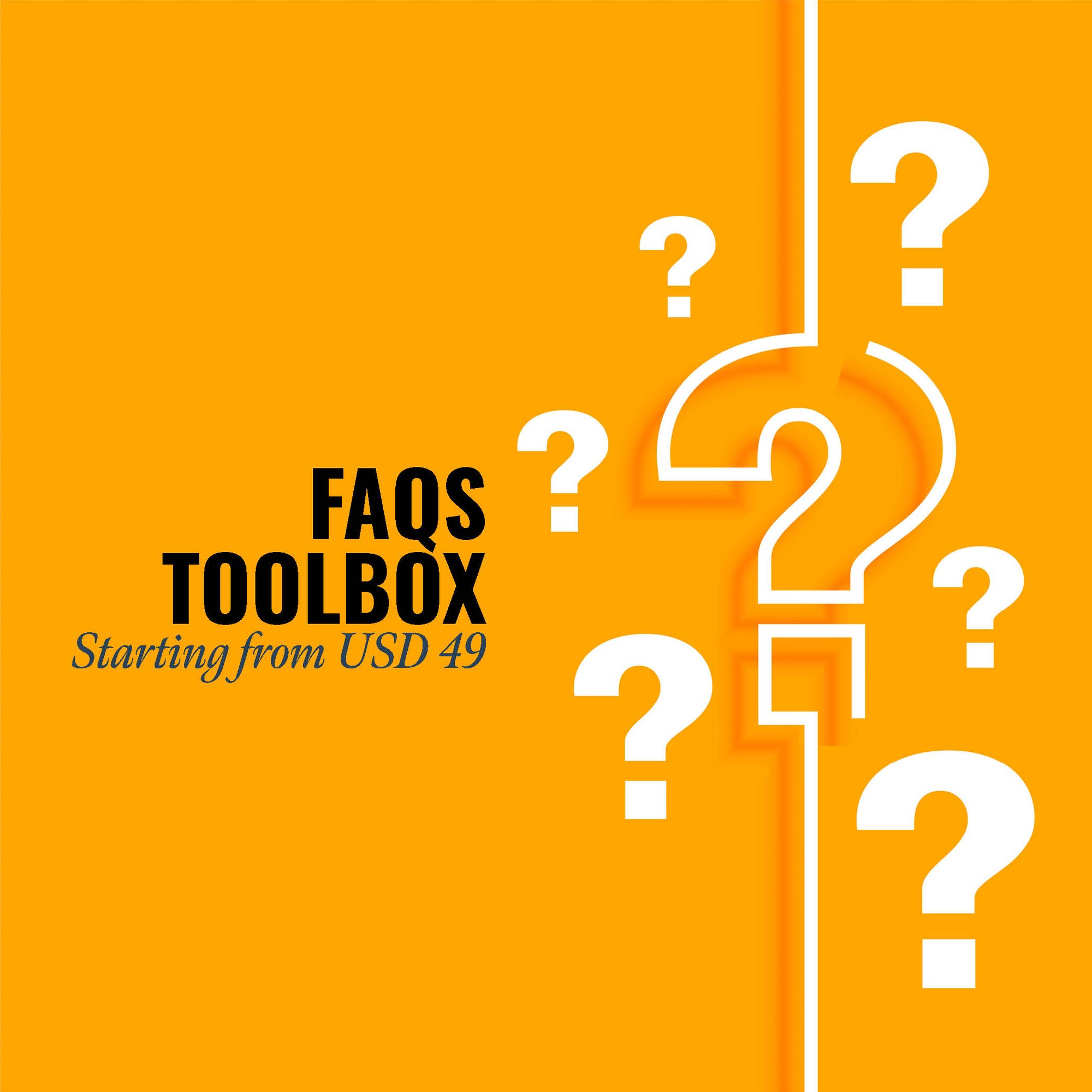The "Solid Waste Collection SOP Manual" holds immense value in the realm of waste management, providing a structured framework for efficient and sustainable operations. Firstly, it establishes standardized procedures, ensuring uniformity in waste collection processes, optimizing route planning, and enhancing overall efficiency. Secondly, the manual acts as a crucial training resource, facilitating the onboarding of staff and promoting safety protocols, reducing occupational hazards. Thirdly, it aids in regulatory compliance by outlining procedures aligned with environmental standards and waste disposal regulations. Fourthly, the SOP Manual contributes to resource optimization, minimizing costs and environmental impact through effective waste collection practices. Additionally, it enhances communication within the waste management team and with the community, fostering a positive relationship. Overall, the manual's value lies in its ability to ensure operational excellence, regulatory adherence, safety, and environmental responsibility in the critical service of solid waste collection.
CLICK HERE to download the List of SOPs Document in PDF format. Please share this document with your clients, colleagues and senior officers.
Top 50 Standard Operating Procedures (SOPs) for Solid Waste Collection
SOP-527-001: Standard Operating Procedure for Solid Waste Collection Planning
SOP-527-002: Standard Operating Procedure for Route Planning and Optimization
SOP-527-003: Standard Operating Procedure for Equipment Inspection and Maintenance
SOP-527-004: Standard Operating Procedure for Solid Waste Collection Vehicle Operations
SOP-527-005: Standard Operating Procedure for Driver Training and Certification
SOP-527-006: Standard Operating Procedure for Waste Bin Inspection and Maintenance
SOP-527-007: Standard Operating Procedure for Bin Placement and Accessibility
SOP-527-008: Standard Operating Procedure for Hazardous Waste Handling
SOP-527-009: Standard Operating Procedure for Biohazardous Waste Handling
SOP-527-010: Standard Operating Procedure for Recycling Collection

SOP-527-011: Standard Operating Procedure for Bulk Waste Collection
SOP-527-012: Standard Operating Procedure for Yard Waste Collection
SOP-527-013: Standard Operating Procedure for Special Event Waste Collection
SOP-527-014: Standard Operating Procedure for Collection Crew Safety
SOP-527-015: Standard Operating Procedure for Personal Protective Equipment (PPE) Usage
SOP-527-016: Standard Operating Procedure for Communication Systems Usage
SOP-527-017: Standard Operating Procedure for Customer Interaction and Education
SOP-527-018: Standard Operating Procedure for Complaint Resolution
SOP-527-019: Standard Operating Procedure for Data Collection and Reporting
SOP-527-020: Standard Operating Procedure for Waste Collection Efficiency Metrics
SOP-527-021: Standard Operating Procedure for Vehicle Fueling and Maintenance
SOP-527-022: Standard Operating Procedure for Vehicle Inspection and Repairs
SOP-527-023: Standard Operating Procedure for Waste Sorting and Categorization
SOP-527-024: Standard Operating Procedure for Recycling Center Drop-Offs
SOP-527-025: Standard Operating Procedure for Collection Schedule Communication
SOP-527-026: Standard Operating Procedure for Electronic Waste Collection
SOP-527-027: Standard Operating Procedure for Illegal Dumping Response
SOP-527-028: Standard Operating Procedure for Collection Vehicle Accident Reporting
SOP-527-029: Standard Operating Procedure for Collection Crew Emergency Response
SOP-527-030: Standard Operating Procedure for Waste Collection Vehicle Technology Usage

SOP-527-031: Standard Operating Procedure for Collection Crew Shift Scheduling
SOP-527-032: Standard Operating Procedure for Solid Waste Collection Vehicle Routing
SOP-527-033: Standard Operating Procedure for Emergency Collection Services
SOP-527-034: Standard Operating Procedure for Waste Collection Fleet Management
SOP-527-035: Standard Operating Procedure for Collection Crew Uniform and Equipment
SOP-527-036: Standard Operating Procedure for Waste Collection Equipment Calibration
SOP-527-037: Standard Operating Procedure for Community Outreach and Education
SOP-527-038: Standard Operating Procedure for Waste Collection Program Evaluation
SOP-527-039: Standard Operating Procedure for Collection Vehicle GPS Tracking
SOP-527-040: Standard Operating Procedure for Waste Collection Program Audits
SOP-527-042: Standard Operating Procedure for Waste Collection Vehicle Wash and Maintenance
SOP-527-043: Standard Operating Procedure for Collection Vehicle Load Optimization
SOP-527-044: Standard Operating Procedure for Waste Collection Program Budgeting
SOP-527-045: Standard Operating Procedure for Collection Vehicle Weighing and Inspection
SOP-527-046: Standard Operating Procedure for Waste Collection Program Public Relations
SOP-527-047: Standard Operating Procedure for Collection Crew Training and Development
SOP-527-048: Standard Operating Procedure for Waste Collection Program Public Awareness
SOP-527-049: Standard Operating Procedure for Collection Vehicle Emissions Control
SOP-527-050: Standard Operating Procedure for Waste Collection Program Public Engagement

.jpg?width=645&height=337&name=Standard%20Operating%20Procedure%20-%20SOP%20ToolBox%20(1).jpg)
SOP ToolBox: If you are reading these lines, I am sure you are looking for Standard Operating Procedure guidelines or SOPs itself. In both the cases, searching in internet will not be yielding any great help. Because no company shares their SOP Development Process and certainly don’t share their SOP Documents. The best way to develop an SOP is creating one for yourself. At Fhyzics, we write SOPs day-in and day-out for companies across the globe including some of the Fortune 500 organisations. Our charge ranges from USD 5000 to USD 50000 depending upon the number of processes to be covered. Certainly, this is not affordable to small and mid-size organisations. Hence, we decided to create this SOP ToolBox to disseminate our 8-Step SOP Development Life-Cycle and best practices at an unbelievably low price.
I always say, writing an SOP is somewhere between art and science. So far you may be clueless on where to start and how to progress on an SOP? This will not be the case after you diligently go through this SOP ToolBox. We have summarised all our secrets here to get you started and to deliver a stunning SOP to your management.
- Ash collection services
- Ash hauling, local
- Garbage collection services
- Garbage hauling, local
- Garbage pick-up services
- Recyclable material collection services
- Recyclable material hauling, local
- Refuse collection services
- Refuse hauling, local
- Rubbish hauling, local
- Rubbish collection services
- Trash collection services
- Trash hauling, local
- Waste collection services, non-hazardous solid
- Waste hauling, local, non-hazardous solid
- Waste transfer stations, non-hazardous solid
- Solid Waste Generation
- Solid Waste Collection
- Transportation
- Storage
- Segregation of Wastes
- Home Separation for Recycling
- Disposal Method
- Hand scrapers, shovels, brooms, washers
- Tractor scraper blades
- Lawn and garden size tractor scraping
- Tractor front-end loaders
- Skidsteer and articulated loaders
- All-wheel drive front-end loader
- Motor grader
- Elevating type box scrapers
- Mechanical scrapers for gutters and alleys
- Conveyors and stackers
- Flushed gutters and alleys
- Air-pressure and vacuum waste pumping
- Piston-plunger pumps
- Storage interior accessing
- Storage exterior accessing
- Storage fencing with gates
- Covers, drainage, and runoff control
- Agitators, stirrers, mixers
- Aerators
- Separators
- Dehydrator, incinerator, renderors
- Hauled waste spreading equipment
- Soil injection waste spreading equipment
- Pumped waste spreading
- Biogas production equipment
- Safety protection equipment
- Gases and confined space entry
- Odor detection/measurement equipment
- International Organization for Standardization| ISO/TC 297- https://www.iso.org/committee/5902445.html
- International Organization for Standardization|ISO 13.030- https://www.iso.org/ics/13.030/x/
- ASTM International|ASTM C1571-03(2012)- https://www.astm.org/Standards/C1571.htm#:~:text=ASTM%20C1571%20%2D%2003(2012),for%20Thermal%20Treatment%20(Withdrawn%202018)
- The International Solid Waste Association- https://www.iswa.org/
- Waste & Recycling Industry Associations- https://wasteadvantagemag.com/industry-associations/
- Covanta| New Jersey, United States| http://www.covanta.com/
- Biffa| Buckinghamshire, United Kingdom| https://www.biffa.co.uk/
- Veolia| Aubervilliers, France| https://www.veolia.com/en
- SUEZ|Paris, France| https://www.suez.com/en
- Waste Management | Texas, United States| http://www.wm.com/
- Hitachi Zosen Corporation|Osaka, Japan| http://www.hz-inova.com/cms/
- Clean Harbors|Massachusetts, United States| http://www.cleanharbors.com/
- Remondis| Lünen, Germany| https://www.remondis.com/en/home/
- Advanced Disposal Services| Florida, United States| https://www.advanceddisposal.com/
- Republic Services| Arizona, United States| http://www.republicservices.com/
- Waste Advantage Magazine- https://wasteadvantagemag.com/
- Waste Today Magazine- https://www.wastetodaymagazine.com/
- Resource Recycling Magazine- https://resource-recycling.com/recycling/magazine/
- Waste Management – Journal| Elsevier- https://resource-recycling.com/recycling/magazine/
- Waste Management| Resource Magazine- https://resource.co/waste-management
- Waste360 Magazine- https://www.waste360.com/waste360-magazine
- Recent Waste Management Articles| Elsevier- https://www.journals.elsevier.com/waste-management/recent-articles
Our SOP Templates’ clients are from the following States and Countries:
Alabama, Alaska, Arizona, Arkansas, California, Colorado, Connecticut, Delaware, Florida, Georgia, Hawaii, Idaho, Illinois, Indiana, Iowa, Kansas, Kentucky, Louisiana, Maine, Maryland, Massachusetts, Michigan, Minnesota, Mississippi, Missouri, Montana, Nebraska, Nevada, New Hampshire, New Jersey, New Mexico, New York, North Carolina, North Dakota, Ohio, Oklahoma, Oregon, Pennsylvania, Rhode Island, South Carolina, South Dakota, Tennessee, Texas, Utah, Vermont, Virginia, Washington, West Virginia, Wisconsin, Wyoming.
Afghanistan, Albania, Algeria, Andorra, Angola, Antigua and Barbuda, Argentina, Armenia, Australia, Austria, Azerbaijan, Bahamas, Bahrain, Bangladesh, Barbados, Belarus, Belgium, Belize, Benin, Bhutan, Bolivia, Bosnia and Herzegovina, Botswana, Brazil, Brunei Darussalam, Bulgaria, Burkina Faso, Burundi, Cabo Verde, Cambodia, Cameroon, Canada, Central African Republic, Chad, Chile, China, Colombia, Comoros, Congo (Republic of the), Costa Rica, Croatia, Cuba, Cyprus, Czech Republic (Czechia), Democratic People’s Republic of Korea (North Korea), Democratic Republic of the Congo, Denmark, Djibouti, Dominica, Dominican Republic, Ecuador, Egypt, El Salvador, Equatorial Guinea, Eritrea, Estonia, Eswatini, Ethiopia, Fiji, Finland, France, Gabon, Gambia, Georgia, Germany, Ghana, Greece, Grenada, Guatemala, Guinea, Guinea-Bissau, Guyana, Haiti, Honduras, Hungary, Iceland, India, Indonesia, Iran, Iraq, Ireland, Israel, Italy, Jamaica, Japan, Jordan, Kazakhstan,Kenya, Kiribati, Kuwait, Kyrgyzstan, Lao People’s Democratic Republic (Laos), Latvia, Lebanon, Lesotho, Liberia, Libya, Liechtenstein, Lithuania, Luxembourg, Madagascar, Malawi, Malaysia, Maldives, Mali, Malta, Marshall Islands, Mauritania, Mauritius, Mexico, Micronesia (Federated States of), Moldova, Monaco, Mongolia, Montenegro, Morocco, Mozambique, Myanmar (Burma), Namibia, Nauru, Nepal, Netherlands, New Zealand, Nicaragua, Niger, Nigeria, North Macedonia (formerly Macedonia), Norway, Oman, Pakistan, Palau, Panama, Papua New Guinea, Paraguay, Peru, Philippines, Poland, Portugal, Qatar, Republic of Korea (South Korea), Republic of the Congo, Romania, Russian Federation (Russia), Rwanda, Saint Kitts and Nevis, Saint Lucia, Saint Vincent and the Grenadines, Samoa, San Marino, Sao Tome and Principe, Saudi Arabia, Senegal, Serbia, Seychelles, Sierra Leone, Singapore, Slovakia, Slovenia, Solomon Islands, Somalia, South Africa, South Sudan, Spain, Sri Lanka, Sudan, Suriname, Sweden, Switzerland, Syrian Arab Republic (Syria), Tajikistan, Thailand, Timor-Leste, Togo, Tonga, Trinidad and Tobago, Tunisia, Turkey, Turkmenistan, Tuvalu, Uganda, Ukraine, United Arab Emirates, United Kingdom of Great Britain and Northern Ireland, United Republic of Tanzania, United States of America, Uruguay, Uzbekistan, Vanuatu, Venezuela, Viet Nam, Yemen, Zambia, Zimbabwe.
Fhyzics supports organisations in developing the following documentations:
Standard Operating Procedures (SOPs), Work Instructions, Policies and Procedures, Process Flow Diagrams, Job Descriptions, Training Manuals, Employee Handbooks, Compliance Guidelines, Quality Assurance Manuals, Health and Safety Procedures, Risk Management Plans, Business Continuity Plans, Internal Audit Procedures, Incident Reporting Forms, Performance Management Guidelines, Change Management Procedures, Vendor Management Guidelines, Customer Service Protocols, IT Security Policies, IT Support Documentation, Disaster Recovery Plans, Operational Checklists, Data Management Policies, Confidentiality Agreements, Non-Disclosure Agreements, Employee Onboarding Procedures, Employee Exit Procedures, Performance Appraisal Forms, Employee Code of Conduct, Conflict Resolution Procedures, Product Development SOPs, Supply Chain Management Guidelines, Procurement Guidelines, Inventory Management SOPs, Shipping and Receiving Procedures, Production Scheduling SOPs, Maintenance Procedures, Equipment Calibration Documents, Environmental Compliance Documentation, Sustainability Policies, Customer Feedback Forms, Marketing Strategies, Advertising Guidelines, Brand Management Guidelines, Product Packaging SOPs, Laboratory Testing Procedures, Regulatory Compliance Documentation, Tax and Accounting Procedures, Contract Management Procedures, Legal Compliance Guidelines, Financial Reporting Procedures, Budgeting Procedures, Internal Control Procedures, Fraud Prevention Policies, Asset Management Guidelines, Purchase Order Procedures, Sales and Distribution Guidelines, Client Contracts, Customer Return Policies, Internal Communication Protocols, Vendor Evaluation Forms, Product Safety Standards, Workplace Health and Safety Standards, Public Relations Procedures, Social Media Management Guidelines, Crisis Management Plans, Employee Grievance Procedures, Privacy and Data Protection Policies, Digital Transformation Guidelines, Innovation Management Procedures, Continuous Improvement Guidelines, Strategic Planning Documents, Corporate Social Responsibility (CSR) Guidelines, Audit Trails and Records, Employee Training and Development Records, Succession Planning Documents, Talent Acquisition Procedures, Team Collaboration Protocols, Employee Benefit Plans, Workplace Diversity Guidelines, Time and Attendance Tracking, Payroll Procedures, Employee Leave Policies, Conflict of Interest Policy, Emergency Response Procedures, Environmental Impact Assessment Procedures, Transportation and Logistics Procedures, Inventory Control Forms, Warehouse Management Guidelines, Product Lifecycle Management SOPs, Customer Satisfaction Surveys, Third-Party Risk Assessment Guidelines, Technology Adoption Policies, Software Licensing Guidelines, Security Incident Response Procedures, Supply Chain Risk Management Policies, Product Recall Procedures, Food Safety Guidelines, Employee Wellness Programs, Workplace Ergonomics Guidelines.
















